Dr. Mohammad: 'Iraq’s Jewish history and heritage is integral to the Iraqi identity'
Featuring Omar Mohammed

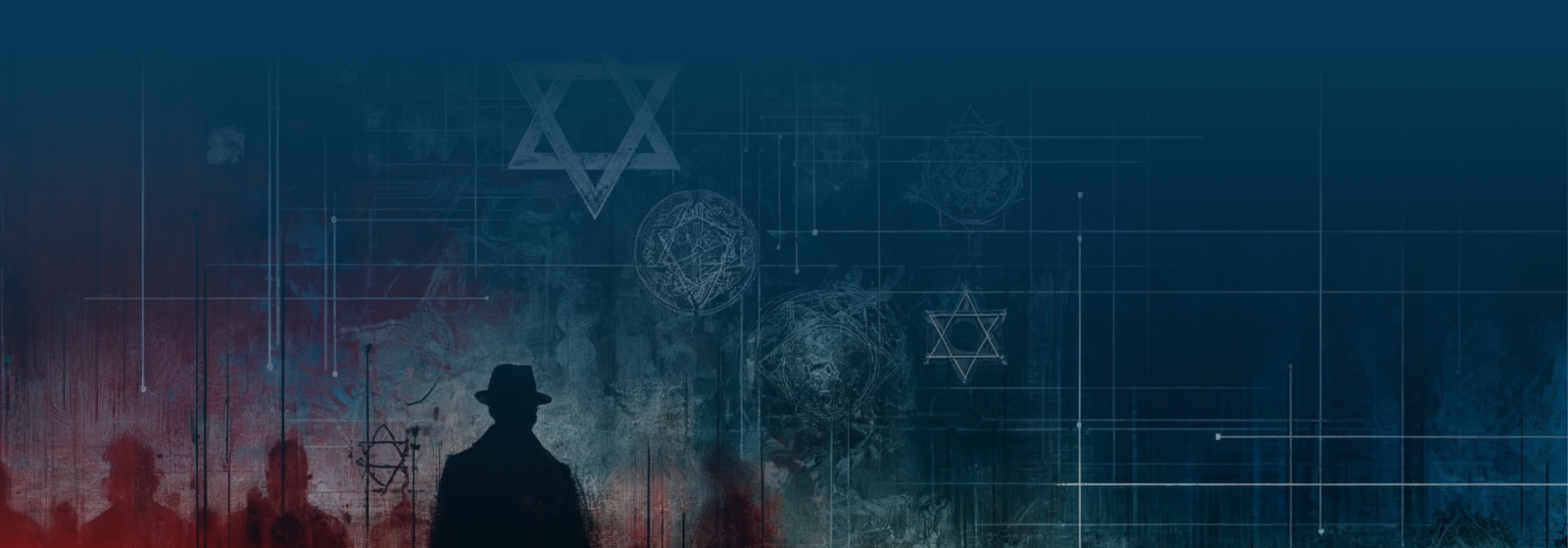 Antisemitism Research Initiative
Antisemitism Research Initiative
The Antisemitism Research Initiative, launched by the Program on Extremism at The George Washington University, addresses the persistent challenge of antisemitism—a pervasive prejudice manifesting globally from subtle biases to overt violence. Our initiative investigates the evolving nature of antisemitic incidents and ideologies in the United States, Europe, and the Middle East. By synthesizing our research findings into actionable policy solutions, we aim to equip policymakers, civic leaders, and law enforcement with practical strategies to counteract antisemitism and promote a more inclusive society.

Director of the Antisemitism Research Initiative

Yitzhak Rabin Memorial Professor of International Affairs, Ethics, and Human Behavior
Professor of Psychiatry and Behavioral Sciences
Elliott School of International Affairs, The George Washington University

Member
European Commission against Racism and Intolerance (ECRI)
Council of Europe

Immediate Past Dean, GSEHD
Professor, Education Policy
The George Washington University

Director
Centro di Documentazione Ebraica Contemporanea

Founder
Ideas Beyond Borders

Maimouna Foundation

Vice President
Fondazione Memoriale della Shoah di Milano
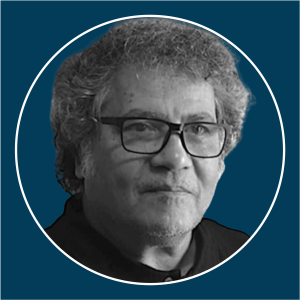
Professor of Arabic Literature
American University of Ras Al Khaimah (AURAK)

Policy Analyst
U.S. Commission on International Religious Freedom (USCIRF)

Global Extremism Papers Editor’s Note – Inaugural Issue (2026)
December 10, 2025

The Unraveling
June 2, 2025

Antisemitism in the Arabic Speaking Sphere
January 14, 2025
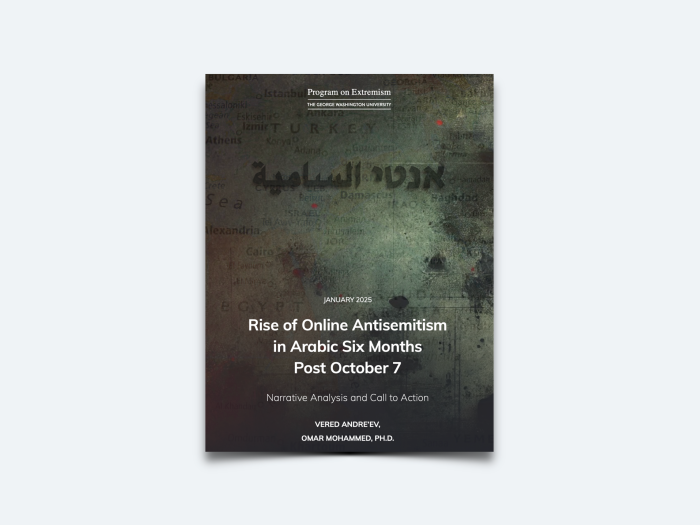
Rise of Online Antisemitism in Arabic Six Months Post October 7
January 14, 2025
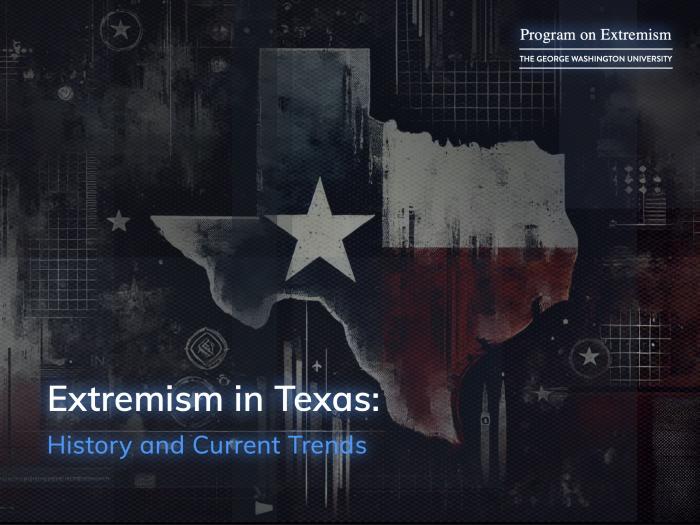
Extremism in Texas, History and Current Trends
December 1, 2024

PoE Extremism Monitor - October 2024 Issue
October 31, 2024
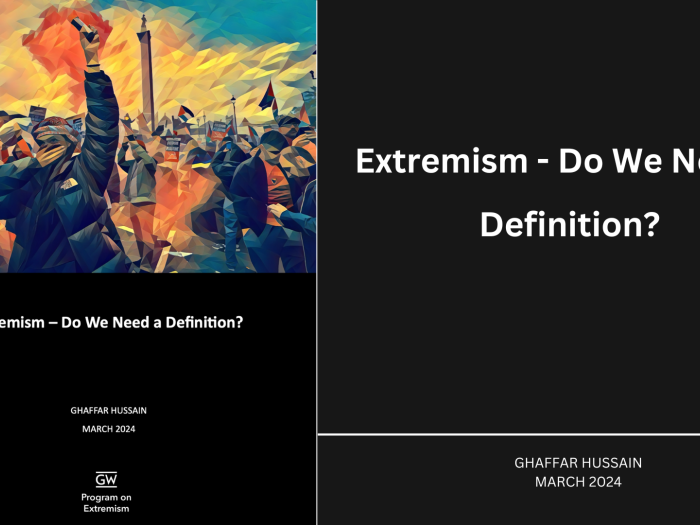
Extremism – Do We Need a Definition?
March 8, 2024
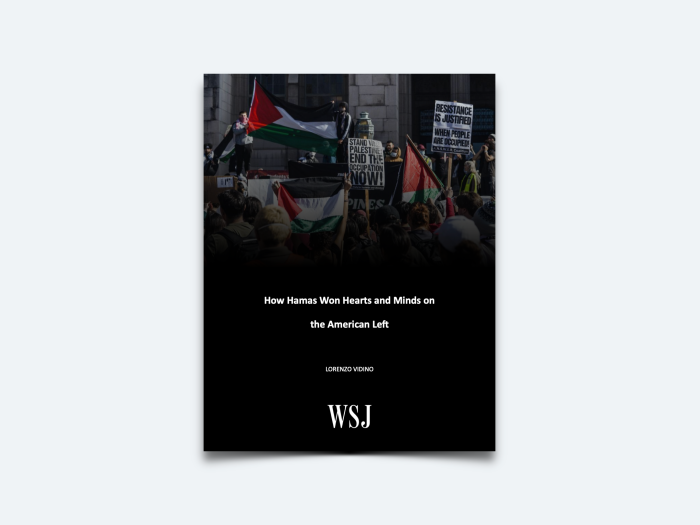
How Hamas Won Hearts and Minds on the American Left
November 2, 2023

"36 Minutes on Antisemitism" is a five-season interactive bi-monthly podcast that explores the contemporary dynamics of antisemitism across the United States, Europe, and the Middle East. This series engages with practitioners, policymakers, and scholars dedicated to studying and combating antisemitism. Through a free-of-edit format, the podcast allows guest speakers to elaborate on the latest trends and insights in antisemitism, fostering a deep and nuanced understanding of its manifestations and challenges.
The "Reviving the Jewish Heritage of Mosul" initiative, led by Omar Mohammed, aimed to preserve and document the oral histories of Mosul's Jewish community. Launched in 2021 and concluded in 2022, this project focused on recording testimonies from community members, as well as the digitization of private archives and a significant journal published by the Jewish community. The initiative received funding from the International Alliance for the Protection of Heritage in Conflict Areas (ALIPH), underscoring its importance in safeguarding cultural history in vulnerable regions.
Civic Minutes is a short-form podcast series that delivers focused, reflective conversations on hate, identity, and democracy—two to three minutes at a time. It's built around the belief that civic discourse shouldn't be long-winded to be meaningful. Each episode isolates one idea, quote, or moment that reveals something critical about our societies, especially in times of division.
Dr. Mohammad: 'Iraq’s Jewish history and heritage is integral to the Iraqi identity'
Featuring Omar Mohammed
Western leaders must confront Islamist-inspired antisemitic violence before it targets everyone
Authored by David Zimmermann
The ‘anti-Zionist’ threat: American Jews increasingly the target of anti-Israel violence
Featuring Omar Mohammed
